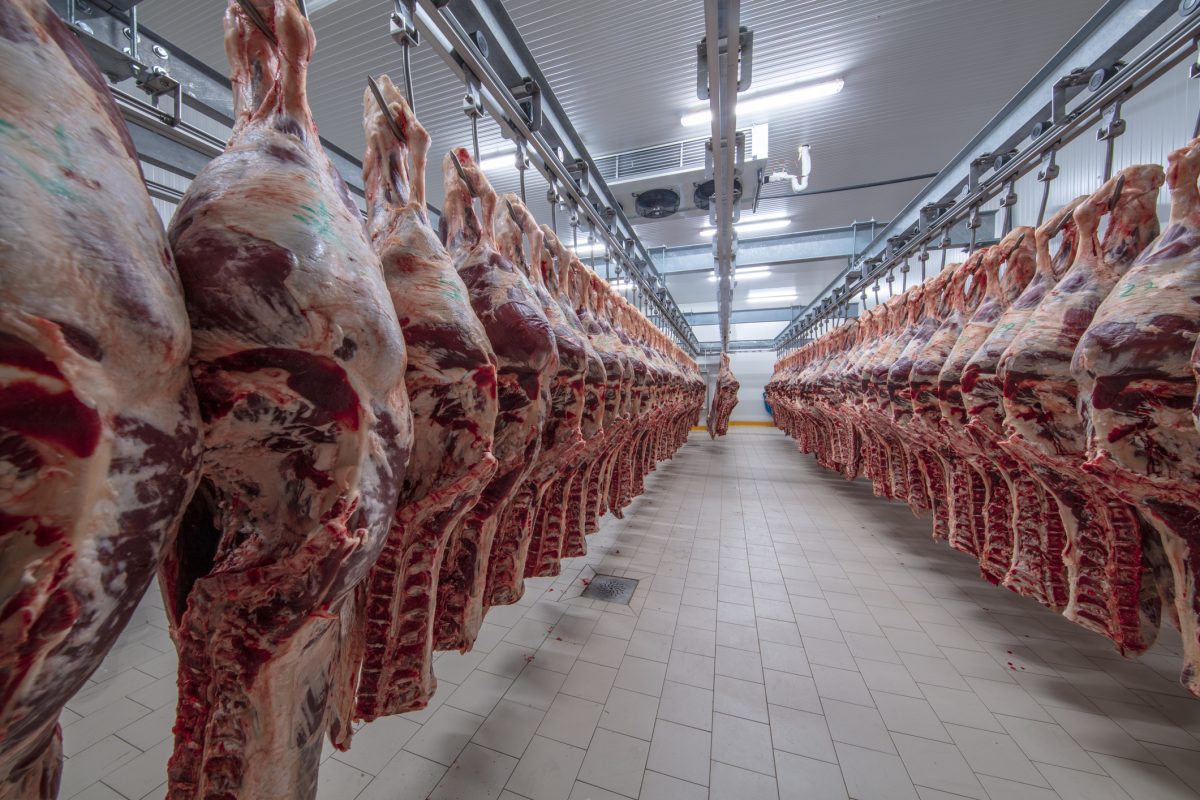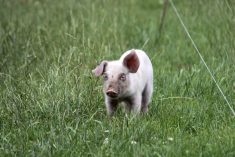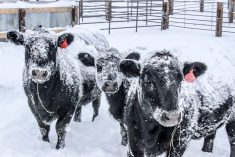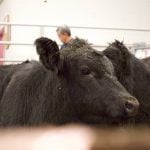A process set up by Canada’s National Farm Animal Care Council will be used to update a national code of practice for beef cattle production.
The Beef Code of Practice, to be updated in partnership with the Canadian Cattlemen’s Association, will be one of the first such codes to enter the NFACC process.
The NFACC code development process itself was finalized earlier this year, with development of a Dairy Code of Practice as its pilot project.
Codes of practice are national guidelines for the care and handling of specific groups of farm animals. The current Recommended Code of Practice for beef cattle dates back to 1991, after about three years in development and review.
Read Also

U.S. livestock: Cattle, hog futures rebound
Chicago cattle and hog futures regained lost ground on Thursday. Most-active February live cattle futures closed at 235.275 cents a…
With a process now chosen to develop it, a new Beef Code is expected to be finalized in 2013, following a public comment period, the CCA said in a release Friday.
The CCA said it views the NFACC code development process as the “best option to achieving an outcome-based, science-based Beef Code of Practice supported by all stakeholders.”
The NFACC process, which was developed using funding from the federal AgriFlexibility program, involves a code development committee and a scientists’ committee, the CCA said. The work of the scientists’ committee informs the work of the code development committee, which in turn develops the code.
The NFACC process thus “does a good job of bringing the scientific outlook and other stakeholders to the table,” said Camrose, Alta. producer Dave Solverson, who chairs the CCA’s animal care committee.
The code development committee will include producers from different regions and types of production, as well as representatives from processors, veterinarians, animal welfare, federal and provincial governments, transporters and enforcement, the CCA said.
“Improved methodologies”
The code renewal process itself is expected to play an important role in telling consumers how beef cattle are raised in Canada, Solverson said Friday. It’s also expected to help Canada’s beef producers by “reinforcing scientifically-sound management practices and identifying improved methodologies in others.”
“This process will give us a great tool to communicate both of these cases to new and existing producers and to consumers,” he said.
The CCA noted its animal care committee “has invested considerable time exploring the best option” for renewing the Beef Code of Practice.
The code now in place was first developed from a working draft penned in the early 1980s by Frank Hurnik, then an animal science professor at the University of Guelph and founding editor of the Journal of Agricultural Ethics.
The CCA in 1988 adopted Hurnik’s text as a working draft, which it then submitted to provincial cattle organizations for review.
Hurnik then chaired a review committee of various stakeholders in the cattle industry as well as government, animal welfare organizations, veterinary associations and others, finalizing the current code in 1991.














